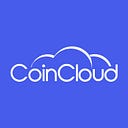How to Avoid Bitcoin ATM Scams
How to Avoid Bitcoin ATM Scams
With over 220 BATMs across the United States, Coin Cloud represents the largest two-way network of Bitcoin ATMs in the nation.
By having such a vast network, both current and prospective Coin Cloud customers can use our machines as their preferred gateway to the world of cryptocurrencies.
No matter where you are in the country, you can use our map locator to find the nearest location to you. This allows thousands of happy customers to buy and sell over 70+ cryptocurrencies on our machines with ease.
However, having such a large network of machines also puts our customers at risk of being unknowingly scammed by fraudsters who prey on industry leaders like Coin Cloud. Because of that, we wanted to put together a guide to ensure that our customers are doing everything within their power to avoid getting scammed.
At the same time, we at Coin Cloud work day in and day out and take great measures to make sure that all of our customers are safe and secure when using our machines.
Below is a list of common scams to avoid:
- IRS Scams: Scammers will go to great lengths to scam people into believing that they owe the government money. They’ll call, email, send mail, whatever. Anything to scam you. When you get approached by one of these fraudsters and they tell you to use a Bitcoin ATM to wire the payment to avoid being charged with a crime, don’t do it! First things first, the government clearly doesn’t accept Bitcoin, so this should be an easy one to avoid. If someone specifically tells you to use a Coin Cloud ATM, please report it to our Customer Success Team immediately.
- Social Security Scams: These scams may involve someone from the Social Security Administration saying that you need to verify your identity and send a payment to avoid penalties. If they tell you to use a Bitcoin ATM, do not do it. Once again, no government agency will ever ask for you to complete a payment via Bitcoin ATMs.
- Utility Scams: People posing as personnel from one of your utility companies will call you up and threaten to shut off your service if you do not complete a payment right away. With your electricity or water looming over your head, we understand why you might be tempted to go ahead and follow their orders. But please be smart... if someone tells you to complete a payment via Bitcoin ATMs, do not do it. Take a second, breathe and find the real number to your utility company. Give them a call and verify that your services are okay.
- Fake Membership Scams: Scammers will call in from a ‘real’ company offering you ridiculous deals on higher-priced items. These items can be anything from cars, to vacations, concert tickets, whatever! Understandably, many buyers would love to make that purchase when the deal just seems too good to be true. Well, if it seems too good to be true, it likely is too good to be true. Don’t fall for it. While we are optimistic that crypto adoption will become so widespread that crypto ATMs are the standard method to send payments, we are currently not quite there yet. So, if any of these ‘companies’ ask you to send a payment via a Bitcoin ATM, please don’t do it to avoid being scammed.
What Is Coin Cloud?
Coin Cloud is a Bitcoin ATM company headquartered in Las Vegas, Nevada. With over 627 locations nationwide, Coin Cloud boasts one of the largest and fastest-growing networks of two-way Bitcoin ATMs in the world. Our network has helped more than 144,000 customers buy and sell cryptocurrency since opening our doors in 2014. To find your nearest Bitcoin ATM, please visit CoinCloudATM.com.
Coin Cloud is registered with FinCEN as a Money Services Business and is compliant with all Federal and State AML/KYC rules including BSA, FinCEN, OFAC, CFPB. Take a look at our map locator to find the nearest Coin Cloud ATM to you. Our machines allow users to buy and sell 70 altcoins with cash.
